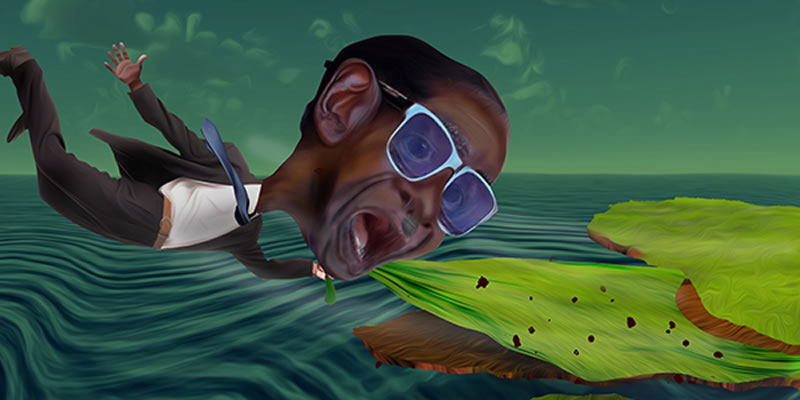The man whom Western leaders love to hate may be nearing his end. But those presidents and prime ministers in Europe and North America should go easy on the celebrations, hold back on the cheers. Robert Mugabe’s spirit will live on well after he has gone, inspiring supporters from Kenya to South Africa.
Far from marking closure of the controversy over his brutal seizure of 4,500 white-owned farms in Zimbabwe, President Mugabe’s passing will more likely signal the start of demonstrations of discontent, rolling across the region. And as the forthcoming elections in the area draw closer, and the social strains and divisions caused by faltering economies intensify, be prepared for southern and eastern Africa’s equivalent of the Trump effect: the emergence of a populist successor to Mugabe.
Whoever it is, whether from Zimbabwe, Kenya or South Africa, they will offer simplistic solutions to the complex consequences of colonialism’s toxic legacy: namely, the dispute over land – who owns it, how they acquired it, what it is being used for, and where the purchase money came from.
And just as President Trump claims to speak for America’s neglected and aggrieved blue collar workers in the so-called ‘rust belt’ states, so a new generation of radical campaigners in Africa will cloak themselves in the mantle of Mugabe, claim to speak for the ‘masses’ – and take a leaf out of the election book of Donald Trump.
Far from marking closure of the controversy over his brutal seizure of 4,500 white-owned farms in Zimbabwe, President Mugabe’s passing will more likely signal the start of demonstrations of discontent, rolling across the region.
Expect these new Mugabes to tap in to an anger that has built up over decades, comparable to the fury that helped propel Trump to power, as they champion the cause of the region’s neglected electorate, for years effectively disenfranchised by the ‘big man’, pork barrel politics that has dominated post-independence Africa.
Their constituents are the legions of landless peasants, eking out a precarious life, hit by drought that occurs with ever increasing frequency and land hunger that is compounded by high population growth.
Abandoned by central government, ignored by international bankers, seen as victims rather than participants, the residents of this ‘dust veldt’ have waited in vain for schools for their children and clinics for their families. Promises count for nothing; corruption takes its toll. Life has become intolerable in this forgotten zone, where vast areas are over-grazed, over-peopled and under-resourced.
Little wonder that more and more country dwellers are migrating to the cities, swelling the ranks of the young urban unemployed, their rebellious mood fueled by tantalising glimpses of a world seen through an internet lens. So look out for clashes between the established urban poor and the newcomers from the country, as they battle over jobs and shelter. Ring the alarm bells when tensions spread beyond the towns and cities, and pastoralists fight nomads as both seek grazing for their livestock. And prepare for the worst when the city poor and their country counterparts settle their differences and find common cause.
Like President Trump, he – or she – will point to the past as they identify the causes of this grim state of affairs. For Trump, it is the Washington elite, and years of indifference to the plight of the ‘rust belt’.
Abandoned by central government, ignored by international bankers, seen as victims rather than participants, the residents of this ‘dust veldt’ have waited in vain for schools for their children and clinics for their families. Promises count for nothing; corruption takes its toll. Life has become intolerable in this forgotten zone, where vast areas are over-grazed, over-peopled and under-resourced.
For the African Trump, blame falls on city elites, and central government neglect. But they will also legitimately argue that the rot set in when Europe’s domination of Africa got under way, and efforts to remedy the consequences of the race-based system of land tenure resulted in failure. Western funded schemes to compensate and reassure white farmers, including ‘willing buyer, willing seller’ programmes served the interests of the settlers, seldom those of the natives. Progress towards an equitable system made modest headway: although the African majority won political power, the struggle to win economic power was to prove more difficult.
Genuine reform required transparency, and a promised change in land ownership had to be part of a wide-ranging economic plan that included a population policy.
Today the consequences of half-hearted reforms, adopted by malleable, newly independent governments, inadequately financed and corruptly implemented, are all too apparent. In Kenya, the population has soared from five million in 1960 to well over 40 million today, while the average size of a shamba has shrunk to a quarter of what it was at independence in 1963.
And in South Africa, instead of grasping the nettle of land reform, and initiating radical change themselves, white farmers have ducked the issue. They have placed their hopes in the country’s constitution, whose architects failed to tackle the historic injustice of racially-determined land tenure. Instead the authors bowed to white economic power, entrenching the ‘willing seller, willing buyer’ principle that ensures that change to ownership will take place at a glacial pace, while black expectations of change are frustrated.
Today the consequences of half-hearted reforms, adopted by malleable, newly independent governments, inadequately financed and corruptly implemented, are all too apparent.
Today who owns the land is as sensitive an issue in southern and eastern Africa as it has ever been.
The case for fundamental reform is compelling; yet the complexities posed by putting principles of transparency and accountability into practice seem well-nigh overwhelming – until, that is, Africa’s Donald Trump comes on the scene.
One thing seems certain however: the shade of Robert Mugabe will cast a shadow over the region for years to come.








